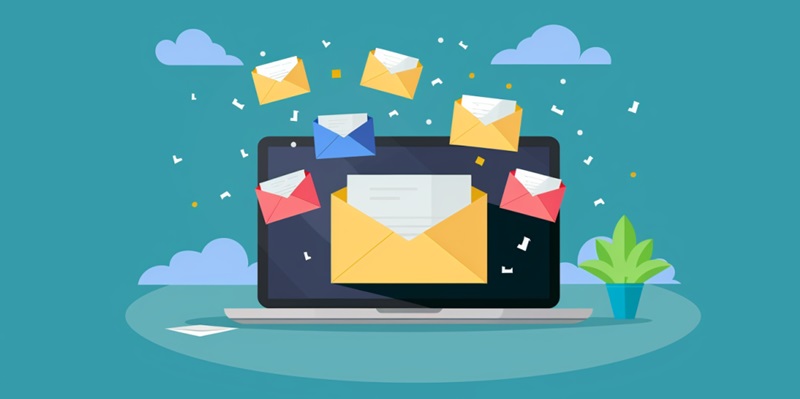The digital landscape is constantly changing, and brands are perpetually in quest of innovative ways to form and sustain connections with their target audience. Amidst a multitude of digital communication channels, the fundamental premise of email marketing continues to hold its ground as a key player in customer engagement tactics. The new challenge lies in infusing personalization into these email interactions without losing efficiency or authenticity. This is where Artificial Intelligence (AI) comes into play, offering businesses opportunities to refine their email marketing strategies for an increasingly discerning consumer base.
The Persistence of Email in a Multichannel World
Email marketing survives and thrives in the modern multichannel milieu, owing to its distinctive capability to nurture direct and substantial relationships with consumers. Michelle Taite, global chief marketing officer for Intuit Mailchimp, recognizes the strength of email marketing as being rooted in the permission granted by the audience. This active decision by consumers to engage with a brand’s content is what sets email marketing apart. It lays a strong foundation for bespoke communication, an indispensable component for establishing trust and ensuring content relevance in the eyes of the receivers.
The true potential of email marketing lies with its consenting audience, creating a direct line to consumers who have expressed a desire to engage with a company’s messaging. This consent-based mechanism provides marketers with the unique advantage of developing personalized communications seamlessly. Crafting emails that cater to the interests and needs of an audience can heighten trust and build an authentic connection, which is crucial in the competitive digital space where relevance and trust are paramount.
Moving Beyond the Traditional Marketing Funnel
The traditional marketing funnel no longer serves as an adequate representation of customer journeys. The dynamics have evolved into a structure that demands a blend of creativity, data analytics, and precision to guide leads to conversion effectively. Marketers are tasked with the formidable challenge of understanding and implementing intricate strategies that go beyond a simplified linear trajectory from awareness to purchase.
In this era, personalization is not merely an option but a necessity. It involves understanding every consumer at an individual level rather than as part of an indistinct cluster. This degree of customization requires that marketers harness the wealth of consumer data available to shape messages, timing, and the content of communications in ways that resonate deeply with each customer. The goal is to make every touchpoint feel uniquely tailored to the individual, thus enhancing the consumer experience and facilitating the conversion process.
Empowering Communication with Hypersegmentation
Hypersegmentation emerges as a potent tool, enabling marketers to communicate with consumer subsets having distinct traits and preferences. This method vastly improves the personal touch in emails, incites brand loyalty, and steps up conversion rates due to the increased relevance of the messages consumers receive.
Michelle Taite shines a spotlight on hypersegmentation through a practical example. Farm to People, a company specializing in delivering fresh food in New York City, tactfully employs customer data to hyper-personalize its email marketing. By tracking the preferences and behaviors of their subscribers, they can craft tailor-made offers that not only appeal to their customers but also significantly enhance the effectiveness of upselling and cross-selling efforts through highly targeted emails.
The Role of AI in Modern Email Marketing
AI is revolutionizing the way marketers approach email personalization. It acts as an intelligent tool that simplifies complex data analysis, enhances message individualization, and minimizes the margin of human error. Moreover, it has the dexterity to take over repetitive tasks, thereby freeing up valuable time for deeper strategic thinking.
For instance, a company like Warm Glass UK efficiently makes use of AI to generate email content that resonates with their customers, requiring minimal manual adjustments. This testament to AI’s capabilities reflects a larger trend where AI-driven content creation promises to transform campaign effectiveness. By analyzing customer data, AI can unlock actionable insights which can then be used to create personalized content that engages and converts.
AI as a Marketing Copilot
In the ever-evolving digital world, brands tirelessly seek fresh ways to connect with their audience. Email marketing remains vital for engagement, but today’s challenge is personalizing these emails without sacrificing efficiency or genuineness. AI steps in as a game-changer, enabling companies to enhance their email strategies to meet the sophisticated expectations of modern consumers. By leveraging AI, brands can tailor their messaging, improve customer experiences, and maintain relevancy in a crowded digital space. This integration of AI in email campaigns allows for a balance between personal touch and mass communication, keeping businesses at the forefront of their audience’s minds. As the digital domain morphs, AI’s role in email marketing becomes increasingly indispensable for brands aiming to captivate and retain their customers.

